Quoc Nguyen
Hub and Spoke Logistics Network Design for Urban Region with Clustering-Based Approach
Jul 07, 2021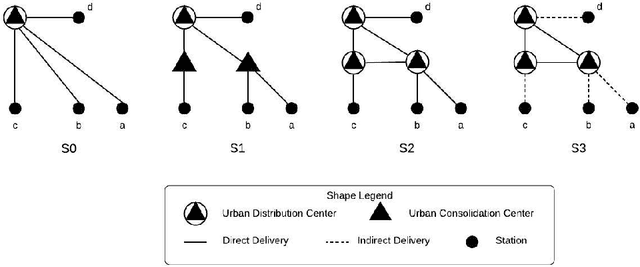

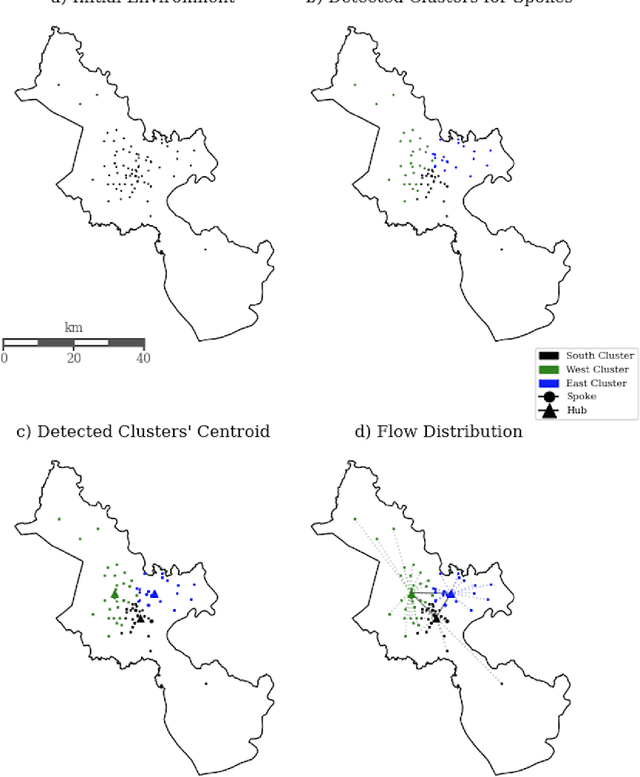

Abstract:This study aims to propose effective modeling and approach for designing a logistics network in the urban area in order to offer an efficient flow distribution network as a competitive strategy in the logistics industry where demand is sensitive to both price and time. A multi-stage approach is introduced to select the number of hubs and allocate spokes to the hubs for flow distribution and hubs' location detection. Specifically, a fuzzy clustering model with the objective function is to minimize the approximate transportation cost is employed, in the next phase is to focus on balancing the demand capacity among the hubs with the help of domain experts, afterward, the facility location vehicle routing problems within the network is introduced. To demonstrate the approach's advantages, an experiment was performed on the designed network and its actual transportation cost for the real operational data in which specific to the Ho Chi Minh city infrastructure conditions. Additionally, we show the flexibility of the designed network in the flow distribution and its computational experiments to develop the managerial insights which contribute to the network design decision-making process.
BoMb-OT: On Batch of Mini-batches Optimal Transport
Feb 11, 2021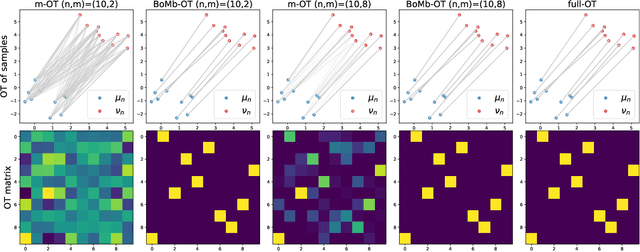
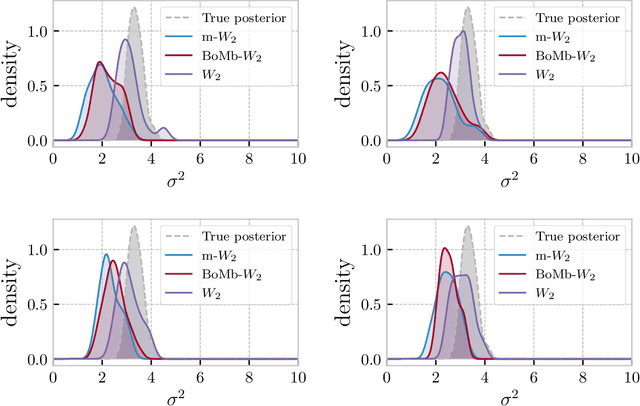
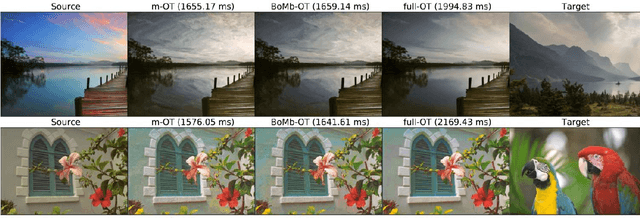

Abstract:Mini-batch optimal transport (m-OT) has been successfully used in practical applications that involve probability measures with intractable density, or probability measures with a very high number of supports. The m-OT solves several sparser optimal transport problems and then returns the average of their costs and transportation plans. Despite its scalability advantage, m-OT is not a proper metric between probability measures since it does not satisfy the identity property. To address this problem, we propose a novel mini-batching scheme for optimal transport, named Batch of Mini-batches Optimal Transport (BoMb-OT), that can be formulated as a well-defined distance on the space of probability measures. Furthermore, we show that the m-OT is a limit of the entropic regularized version of the proposed BoMb-OT when the regularized parameter goes to infinity. We carry out extensive experiments to show that the new mini-batching scheme can estimate a better transportation plan between two original measures than m-OT. It leads to a favorable performance of BoMb-OT in the matching and color transfer tasks. Furthermore, we observe that BoMb-OT also provides a better objective loss than m-OT for doing approximate Bayesian computation, estimating parameters of interest in parametric generative models, and learning non-parametric generative models with gradient flow.
 Add to Chrome
Add to Chrome Add to Firefox
Add to Firefox Add to Edge
Add to Edge